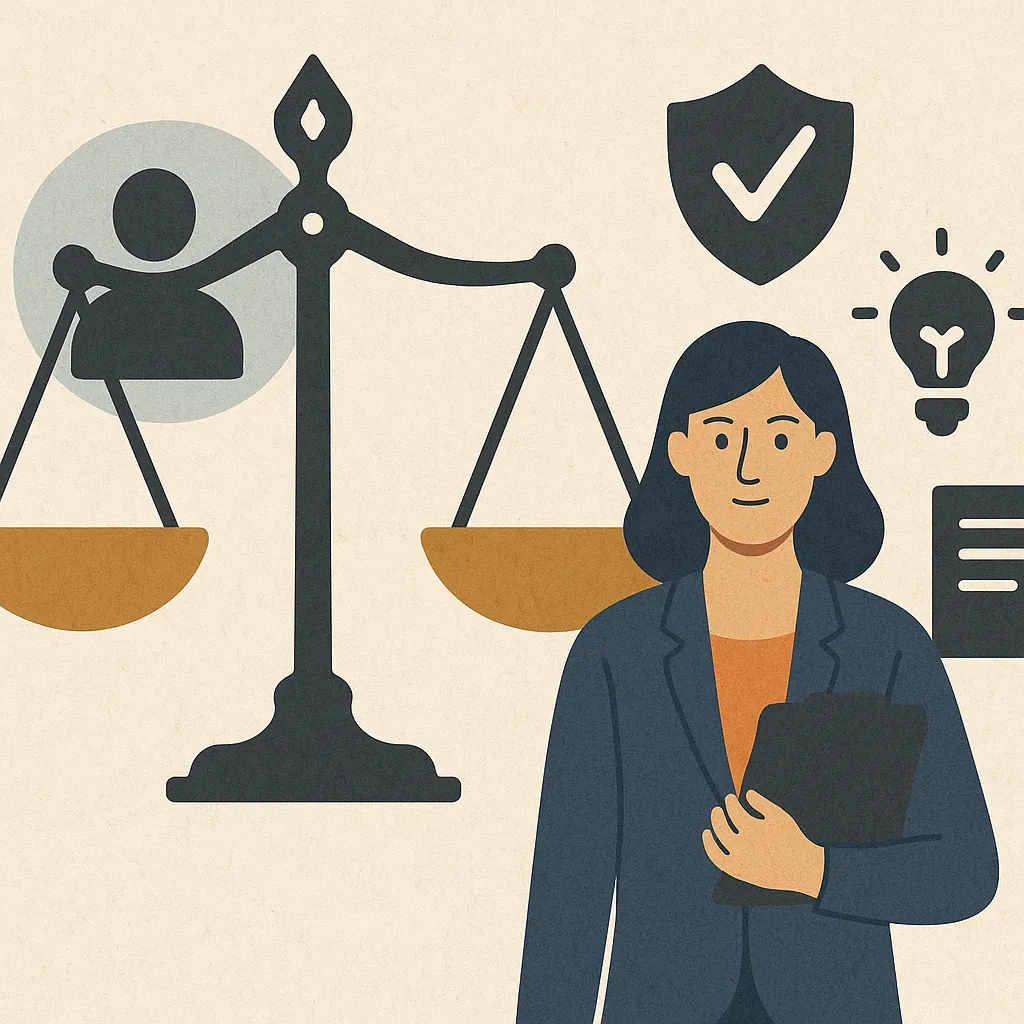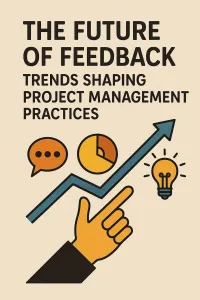Introduction to PMP Certification and Ethics
The Project Management Professional (PMP) certification stands as a hallmark of excellence and a testament to a project manager’s expertise. Administered by the Project Management Institute (PMI), the PMP certification is recognized globally and signifies that an individual possesses the knowledge, skills, and experience necessary to lead and direct projects effectively. This certification not only enhances a project manager’s career prospects but also underscores their commitment to the profession’s standards and ethical practices.
Overview of PMP Certification and Its Significance
The PMP certification is designed for experienced project managers who are responsible for all aspects of project delivery. It covers a wide range of project management principles, methodologies, and best practices, equipping professionals with the tools needed to manage projects successfully. Key areas of focus include:
- Project Initiation and Planning: Understanding how to define project goals, scope, and deliverables.
- Execution and Monitoring: Learning to implement project plans, manage teams, and monitor progress.
- Closing Projects: Gaining insights into how to finalize all project activities and ensure stakeholder satisfaction.
Achieving PMP certification not only validates a project manager’s skills but also enhances their credibility among peers and stakeholders, making it a vital asset in today’s competitive job market.
Definition of Ethics in the Context of Project Management
Ethics in project management refers to the moral principles and standards that guide the behavior of project managers and their teams. It encompasses a range of considerations, including honesty, integrity, fairness, and respect for all stakeholders involved in a project. Ethical project management ensures that decisions are made transparently and responsibly, fostering trust and collaboration among team members, clients, and other stakeholders.
In the context of PMP certification, ethics is a core component of the training curriculum. The PMI Code of Ethics and Professional Conduct outlines the expectations for ethical behavior, emphasizing the importance of making decisions that are not only legally compliant but also morally sound. This framework helps project managers navigate complex situations where ethical dilemmas may arise, ensuring that they uphold the integrity of the profession.
Importance of Ethical Behavior for Project Managers and Stakeholders
The significance of ethical behavior in project management cannot be overstated. Ethical project managers contribute to the overall success of their projects and organizations by:
- Building Trust: Ethical behavior fosters trust among team members and stakeholders, which is essential for effective collaboration and communication.
- Enhancing Reputation: Organizations led by ethical project managers are more likely to maintain a positive reputation, attracting clients and talent alike.
- Mitigating Risks: Ethical decision-making helps identify and address potential risks early, reducing the likelihood of project failures and legal issues.
- Promoting Sustainability: Ethical project management considers the broader impact of projects on society and the environment, aligning with sustainable practices that benefit all stakeholders.
The PMP certification not only equips project managers with essential skills and knowledge but also instills a strong ethical foundation that is crucial for navigating the complexities of project management. As the industry continues to evolve, the emphasis on ethics and professional responsibility will remain a cornerstone of effective project leadership, ensuring that project managers can meet the challenges of their roles with integrity and accountability.
Core Ethical Principles in Project Management
Ethical considerations are paramount. The Project Management Professional (PMP) certification not only equips professionals with the technical skills necessary for successful project execution but also emphasizes the importance of ethical behavior and professional responsibility. Here are the core ethical principles that guide project management practices:
1. Integrity, Honesty, Respect, and Fairness
- Integrity: Project managers are expected to uphold integrity by being truthful and maintaining consistency in their actions and decisions. This principle fosters trust among team members and stakeholders, which is essential for effective collaboration.
- Honesty: Transparency in communication is vital. Project managers must provide accurate information regarding project status, risks, and challenges, ensuring that all stakeholders are well-informed and can make decisions based on reliable data.
- Respect: Treating all individuals with dignity and valuing their contributions is crucial. This principle encourages a positive work environment where team members feel valued and motivated to perform at their best.
- Fairness: Project managers should strive to be impartial and just in their dealings. This includes equitable treatment of team members and stakeholders, as well as making decisions that are in the best interest of the project and its objectives.
2. Accountability and Transparency
- Accountability: Project managers must take responsibility for their actions and decisions. This includes acknowledging mistakes and learning from them, which not only enhances personal growth but also sets a standard for the team.
- Transparency: Open communication about project processes, decisions, and outcomes is essential. By fostering an environment of transparency, project managers can build trust and encourage stakeholder engagement, which is critical for project success.
3. Ethical Decision-Making
- Role of Ethical Decision-Making: In various project scenarios, project managers often face dilemmas that require ethical decision-making. This involves evaluating the potential impact of decisions on stakeholders and considering the long-term implications of those choices.
- Framework for Decision-Making: PMP training provides frameworks and tools that help project managers navigate ethical challenges. By applying these frameworks, professionals can ensure that their decisions align with ethical standards and contribute positively to the project and the organization.
The ethical dimension of project management is integral to the PMP certification. By understanding and applying these core ethical principles—integrity, honesty, respect, fairness, accountability, transparency, and ethical decision-making—project managers can enhance their professional practice and contribute to the overall success of their projects. This commitment to ethics not only benefits individual projects but also elevates the profession as a whole, fostering a culture of responsibility and trust within the industry.
Ethics in the PMP Exam and Training
Ethical considerations are paramount. The Project Management Institute (PMI) emphasizes the importance of ethics through its certification programs, particularly the Project Management Professional (PMP) certification. This section explores how ethics is integrated into PMP certification training and examination, providing valuable insights for project managers and industry professionals.
Overview of the Ethical Standards Outlined by the Project Management Institute (PMI)
The PMI has established a comprehensive set of ethical standards that guide project managers in their professional conduct. These standards are encapsulated in the PMI Code of Ethics and Professional Conduct, which outlines four key values:
- Responsibility: Project managers are expected to take ownership of their decisions and actions, ensuring accountability in their projects.
- Respect: This value emphasizes the importance of treating all stakeholders with dignity and fairness, fostering a collaborative environment.
- Fairness: Project managers must make decisions impartially and objectively, ensuring that all stakeholders have an equal opportunity to contribute.
- Honesty: Transparency in communication and reporting is crucial, as it builds trust among team members and stakeholders.
These ethical standards serve as a foundation for the PMP certification, ensuring that certified professionals are equipped to handle the complexities of project management with integrity.
Discussion of Ethical Dilemmas Presented in PMP Exam Scenarios
The PMP exam includes scenarios that present ethical dilemmas, challenging candidates to apply their understanding of ethical principles in practical situations. For instance, candidates may encounter questions that require them to navigate conflicts of interest, manage stakeholder expectations, or address issues of resource allocation.
- Conflict of Interest: Candidates might face scenarios where personal relationships could influence project decisions. The ethical response would involve disclosing such relationships and recusing oneself from decision-making processes.
- Resource Allocation: Situations may arise where project managers must decide how to allocate limited resources among competing projects. Ethical decision-making would require a fair assessment of each project’s needs and potential impacts on stakeholders.
These dilemmas not only test candidates’ knowledge of ethical standards but also prepare them for real-world challenges they may face in their careers.
Importance of Ethical Training and Its Impact on Project Outcomes
Ethical training is a critical component of PMP certification, as it equips project managers with the skills to navigate complex ethical landscapes. The impact of ethical training on project outcomes is significant:
- Enhanced Decision-Making: Project managers who are well-versed in ethical principles are better equipped to make informed decisions that consider the interests of all stakeholders.
- Improved Stakeholder Relationships: Ethical conduct fosters trust and respect among team members and stakeholders, leading to more effective collaboration and communication.
- Positive Project Outcomes: Projects led by ethically trained managers are more likely to achieve their objectives, as ethical considerations often lead to more sustainable and responsible project practices.
The integration of ethics into the PMP certification process is essential for developing responsible project managers. By understanding and applying ethical standards, project managers can navigate challenges effectively, ensuring successful project outcomes while upholding the integrity of the profession.
Real-World Ethical Dilemmas in Project Management
Ethical considerations are paramount. The Project Management Professional (PMP) certification not only equips professionals with essential skills and knowledge but also emphasizes the importance of ethics and professional responsibility. Here, we explore some common ethical dilemmas that project managers may encounter, along with strategies for resolution and the potential consequences of unethical behavior.
Case Studies Illustrating Common Ethical Challenges
- Resource Allocation Conflicts: A project manager may face a situation where they must allocate limited resources between competing projects. For instance, if two projects are vying for the same team members, the project manager must decide which project receives priority. This can lead to ethical dilemmas regarding fairness and transparency in decision-making.
- Stakeholder Manipulation: In some cases, project managers might be pressured to misrepresent project status to stakeholders to secure funding or support. For example, a project manager might be tempted to downplay risks or inflate timelines to appease stakeholders, which can lead to a loss of trust and credibility.
- Confidentiality Breaches: Project managers often handle sensitive information. An ethical dilemma arises when a project manager is approached by a competitor seeking confidential data about a project. The decision to share or withhold information can have significant implications for both the project and the organization.
Strategies for Resolving Ethical Dilemmas
- Adherence to the PMI Code of Ethics: The Project Management Institute (PMI) provides a Code of Ethics that emphasizes responsibility, respect, fairness, and honesty. Project managers should refer to this code when faced with ethical dilemmas, ensuring their decisions align with these core values.
- Stakeholder Engagement: Engaging stakeholders in decision-making processes can help mitigate ethical dilemmas. By fostering open communication and transparency, project managers can build trust and ensure that all voices are heard, leading to more ethical outcomes.
- Consultation and Collaboration: When confronted with a challenging ethical decision, project managers should seek advice from peers or mentors. Collaborative discussions can provide new perspectives and help identify the most ethical course of action.
Consequences of Unethical Behavior in Project Management
The repercussions of unethical behavior in project management can be severe and far-reaching:
- Damage to Reputation: Unethical actions can tarnish a project manager’s reputation, making it difficult to gain the trust of stakeholders and colleagues in future projects. A damaged reputation can lead to career setbacks and loss of opportunities.
- Legal Ramifications: In some cases, unethical behavior can lead to legal consequences. For example, misrepresentation of project data can result in lawsuits or penalties for the organization, impacting its financial stability and credibility.
- Project Failure: Ultimately, unethical decisions can jeopardize the success of a project. If stakeholders lose trust or if resources are mismanaged, the project may fail to meet its objectives, leading to wasted time and resources.
The ethical dimension of project management is critical for ensuring successful project outcomes and maintaining professional integrity. By understanding common ethical dilemmas, employing effective resolution strategies, and recognizing the consequences of unethical behavior, project managers can navigate the complexities of their roles with confidence and responsibility. The insights gained from PMP certification serve as a valuable foundation for fostering ethical practices in the field of project management.
The Role of Leadership in Promoting Ethical Practices
The significance of ethical leadership cannot be overstated. As project managers navigate complex projects, they are not only responsible for delivering results but also for upholding ethical standards that guide their teams. The Project Management Professional (PMP) certification emphasizes the importance of ethics and professional responsibility, equipping project managers with the knowledge and skills necessary to foster an ethical environment. Here are some key points on the role of leadership in promoting ethical practices within project teams:
- Project Managers as Ethical Leaders: Project managers are positioned as ethical leaders who set the tone for their teams. They are responsible for making decisions that align with both organizational values and ethical standards. By embodying integrity and transparency, project managers can inspire their teams to adopt similar values, creating a culture of trust and accountability. This leadership role is crucial, as ethical lapses can lead to project failures and damage to the organization’s reputation.
- Cultivating an Ethical Culture: Techniques for fostering an ethical culture within project teams include establishing clear ethical guidelines, providing training on ethical decision-making, and encouraging open communication. Project managers can implement regular discussions about ethical dilemmas that may arise during the project lifecycle, allowing team members to voice concerns and share perspectives. This proactive approach not only helps in identifying potential ethical issues early but also reinforces the importance of ethical behavior in achieving project success.
- Leading by Example: One of the most effective ways to promote ethical practices is through leading by example. Project managers should demonstrate ethical behavior in their actions and decisions, as this sets a powerful precedent for their teams. When team members observe their leaders making ethical choices, they are more likely to emulate those behaviors. Additionally, encouraging team discussions around ethics can help to normalize conversations about ethical challenges, making it easier for team members to address these issues when they arise.
- Encouraging Team Discussions: Creating a safe space for team discussions about ethics is essential for fostering an ethical project environment. Project managers can facilitate workshops or meetings focused on ethical scenarios relevant to the project, allowing team members to collaboratively explore solutions. This not only enhances team cohesion but also empowers individuals to take ownership of ethical practices within their roles.
The role of leadership in promoting ethical practices within project management is vital. By acting as ethical leaders, cultivating an ethical culture, leading by example, and encouraging open discussions, project managers can significantly influence their teams’ ethical standards. The insights gained from PMP certification provide a strong foundation for project managers to navigate the ethical dimensions of their work, ultimately leading to more successful and responsible project outcomes.
Continuing Education and Ethics in Project Management
The importance of ethics and professional responsibility cannot be overstated. The Project Management Professional (PMP) certification provides a foundational understanding of these principles, but the journey does not end there. Continuous education in ethics is essential for project managers and industry professionals to navigate the complexities of their roles effectively. Here are some key points to consider regarding the ethical dimension of project management and the importance of ongoing learning.
Importance of Staying Updated on Ethical Standards and Practices
- Dynamic Nature of Ethics: The field of project management is constantly evolving, and so are the ethical standards that govern it. New challenges arise with advancements in technology, globalization, and changing societal expectations. Staying updated on these standards ensures that project managers can make informed decisions that align with current best practices and ethical norms.
- Reinforcement of Ethical Decision-Making: Regular training and education in ethics reinforce the importance of ethical decision-making. Project managers are often faced with dilemmas that require a strong ethical compass. Continuous learning helps sharpen this compass, enabling professionals to handle complex situations with integrity and accountability.
- Building Trust and Credibility: Adhering to ethical standards fosters trust among stakeholders, including team members, clients, and the broader community. By committing to ongoing education in ethics, project managers demonstrate their dedication to maintaining high standards of professionalism, which can enhance their credibility and reputation in the industry.
Resources for Continued Education in Project Management Ethics
- Professional Organizations: Organizations such as the Project Management Institute (PMI) offer a wealth of resources, including webinars, workshops, and publications focused on ethics in project management. Engaging with these resources can provide valuable insights and updates on ethical practices.
- Online Courses and Certifications: Numerous platforms offer specialized courses in project management ethics. These courses often cover case studies, ethical frameworks, and real-world applications, allowing project managers to deepen their understanding and application of ethical principles.
- Networking and Peer Discussions: Participating in professional networks and forums can facilitate discussions on ethical challenges and solutions. Engaging with peers allows project managers to share experiences, learn from one another, and collectively enhance their understanding of ethical practices in the field.
Encouragement for Professional Development and Peer Discussions on Ethical Practices
- Fostering a Culture of Ethics: Project managers should not only pursue their own education but also encourage their teams to engage in discussions about ethics. Creating an environment where ethical considerations are openly discussed can lead to a more conscientious and responsible project culture.
- Mentorship and Leadership: Experienced project managers can play a crucial role in mentoring less experienced colleagues on ethical practices. By sharing insights and experiences, they can help cultivate a new generation of project managers who prioritize ethics in their work.
- Commitment to Lifelong Learning: The journey of ethical education is ongoing. Project managers should view their PMP certification as a stepping stone rather than the final destination. Embracing a mindset of lifelong learning will not only enhance their skills but also contribute to the overall integrity of the project management profession.
The ethical dimension of project management is a critical area that requires continuous attention and development. By prioritizing ongoing education in ethics, project managers can navigate their responsibilities with greater confidence and integrity, ultimately leading to more successful and ethically sound project outcomes.
Conclusion: The Lasting Impact of Ethical Training
The significance of ethics cannot be overstated. Ethical considerations are foundational to successful project execution and management, influencing decision-making processes, stakeholder relationships, and overall project outcomes. Here are the key takeaways regarding the importance of ethics in project management and the role of PMP certification in enhancing ethical responsibilities:
- Importance of Ethics in Successful Project Management: Ethics serve as a guiding principle that shapes the behavior of project managers and their teams. Adhering to ethical standards fosters trust, transparency, and accountability, which are essential for building strong relationships with stakeholders. Ethical project management not only mitigates risks but also enhances the reputation of the organization, leading to long-term success and sustainability.
- PMP Certification and Ethical Responsibilities: The Project Management Professional (PMP) certification emphasizes the importance of ethical behavior through its code of conduct and professional standards. By undergoing PMP training, project managers gain insights into ethical dilemmas they may face and learn how to navigate these challenges effectively. The certification process reinforces the idea that ethical considerations should be integrated into every aspect of project management, from planning to execution and closure. This training equips professionals with the tools to make informed decisions that align with both organizational goals and ethical standards.
The lasting impact of ethical training in project management is profound. It shapes not only the success of individual projects but also the broader landscape of the industry. By committing to ethical standards, project managers can lead with integrity, ensuring that their projects are not only successful but also responsible and sustainable.
Find out more about Shaun Stoltz https://www.shaunstoltz.com/about/.
This post was written by an AI and reviewed/edited by a human.



